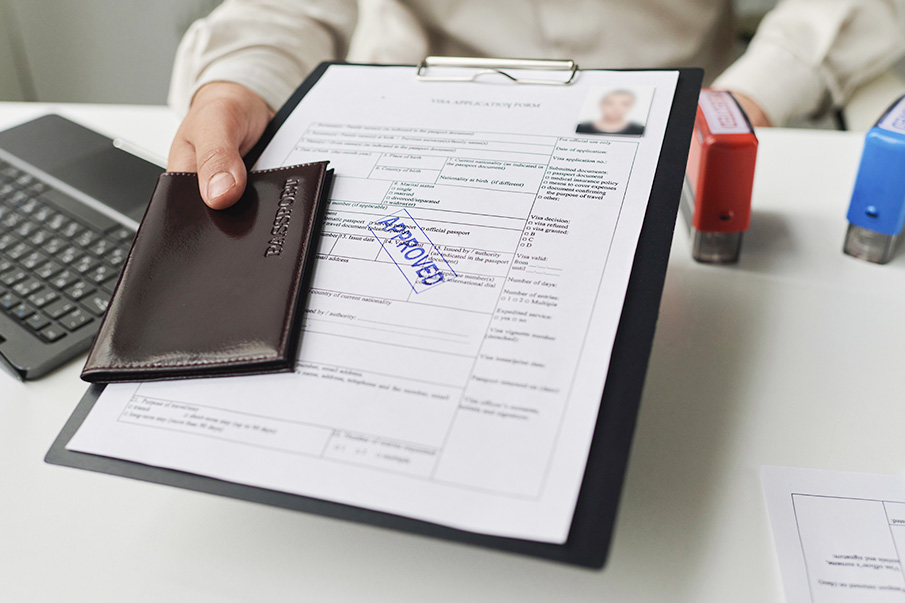Company Incorporation
Dubai has emerged as a global business hub, attracting entrepreneurs and investors worldwide. Dubai is a great place to start a business because it has favorable tax laws, a prime location, and a conducive atmosphere for doing business. But not every type of business is allowed in Dubai. If you plan to launch a company, you must find out where your status falls – whether legal or not. So, what businesses are permitted in Dubai? How does Dubai company incorporation work? This piece will reveal the answers to these questions and more.
Dubai Company Incorporation
- An Overview
Dubai’s vibrant and diverse economy presents abundant business opportunities for entrepreneurs. The city is home to thriving sectors such as finance, real estate, tourism, logistics, and technology. Dubai’s free zones, in particular, focus on specific industries, providing specialized infrastructure, incentives, and access to a network of businesses. Furthermore, Dubai’s strategic location connects businesses to a vast consumer market in the Middle East, Africa, and Asia. Establishing a company in Dubai also enhances a business’s global exposure, as the city hosts numerous international exhibitions, conferences, and events, attracting industry leaders and investors worldwide.
Dubai’s legal and regulatory framework provides a transparent and business-friendly environment for company incorporation. The Department of Economic Development (DED) is the primary authority responsible for registering companies in Dubai mainland, while each free zone has its regulatory authority. Entrepreneurs need to comply with relevant laws and regulations, submit the necessary documents, and fulfill specific requirements related to share capital, office space, and licensing. Engaging the services of a professional business consultant or law firm can significantly facilitate the incorporation process by ensuring compliance with all legal obligations and navigating the intricacies of the local regulatory landscape.
Eligible Business
Structures Under
Company Registration
in Dubai
Eligible Business
Structures Under
Company
Registration in Dubai
Dubai’s business-friendly environment attracts entrepreneurs from around the world. When registering a business in Dubai, it is essential to choose the proper business structure that aligns with your objectives and requirements. Each business structure – a mainland company, a free zone company, an offshore company – offers unique advantages and disadvantages. Understanding these structures will help entrepreneurs make informed decisions and set a solid foundation for their business endeavors in the dynamic Dubai market. They include;
Mainland Company
A mainland company, also known as an onshore company, allows businesses to operate within the local market in Dubai and throughout the United Arab Emirates (UAE). Key features and advantages of a mainland company include:
Advantages
- No restriction on business activities: Mainland companies are free to engage in legal business activities.
- Access to the local market: Mainland companies can conduct business with the local population and government entities without restrictions.
- Flexibility in office locations: Mainland companies can choose office locations within Dubai.
- No limitation on hiring employees: Mainland companies can employ an unlimited number of employees.
Disadvantages
- Requirement of a local partner or sponsor: Mainland companies require a local UAE citizen or a UAE national-owned company as a sponsor, who holds 51% of the company’s shares.
- Higher setup and operational costs: Mainland companies have higher setup costs due to licensing fees, office space requirements, and other associated expenses.
- Complex legal and regulatory requirements: Mainland companies must comply with the UAE’s labor and commercial laws, as well as regulations set by the Department of Economic Development (DED).
Free Zone Company
Dubai offers a wide range of free zones, each specializing in specific industries and providing unique benefits to businesses. Key features and advantages of a free zone company include:
Advantages
- 100% foreign ownership: Free zone companies allow full ownership by foreign investors without needing a local partner.
- Tax benefits: Free zones provide tax exemptions on corporate and personal income tax for a specific period.
- Easy company setup process: Free zones offer streamlined procedures for company registration, licensing, and other administrative functions.
- Repatriation of capital and profits: Free zone companies allow the repatriation of 100% of capital and profits back to the home country.
- Customized office spaces and facilities: Free zones provide modern infrastructure, ready-to-use office spaces, and access to business support services.
Disadvantages
- Restricted business activities: Each free zone has its own set of permitted activities, limiting the scope of business operations.
- Limitation on trading within the UAE market: Free zone companies can conduct business activities only within the free zone or with entities outside the UAE. Operating in the local market requires additional licenses and partnerships.
- Higher renewal and operational costs: Free zone companies have annual license renewal fees and higher operating costs than mainland companies.
- Limited office locations: Free zone companies must operate within the boundaries of the respective free zone, restricting the choice of office location.
Offshore Company
Dubai also offers offshore company registration through the Jebel Ali Free Zone Authority (JAFZA) Offshore Company. Key features and advantages of an offshore company include:
Advantages
- 100% foreign ownership and control: Offshore companies allow complete foreign ownership and control of the business.
- Tax benefits: Offshore companies are exempt from corporate and personal income tax.
- Asset protection and Privacy: Offshore companies provide confidentiality and asset protection for individuals and businesses.
- Ease of company setup and maintenance: The setup process for an offshore company is relatively quick and straightforward.
- Flexibility in currency usage: Offshore companies can transact business in multiple currencies.
- JAFZA is the only offshore company in UAE allowed to own local Dubai real estate
Disadvantages
- Limited business activities: Offshore businesses aren’t allowed to operate in the UAE market.
- Restricted local presence: Offshore companies cannot have physical office spaces or operate within the UAE market.
- Limited banking options: Offshore companies may face challenges opening local bank accounts, as many banks prefer dealing with onshore companies.
- Not suitable for local market operations: Offshore companies are for international business, asset protection, and wealth management.
Evaluating factors such as ownership requirements, business activities, taxation, market access, and cost considerations is essential to make an informed decision. Seeking professional advice from business consultants or legal experts can further assist entrepreneurs in selecting the most suitable business structure for their needs. Understanding the advantages and disadvantages of each system will pave the way for a successful and compliant business registration process in Dubai.
Dubai Company
Incorporation
Requirements
Dubai Company Incorporation
Requirements
Dubai incorporation requirements are well-defined and aimed at facilitating business growth and success. To establish a company in Dubai, it is essential to understand the incorporation requirements and procedures. Adhering to these requirements ensures a smooth and compliant process, setting the foundation for a thriving business in the vibrant city of Dubai. These requirements include the following;

Activity and Legal Structure
The first step in Dubai incorporation is to determine the nature of the business activity and the legal structure. It is crucial to choose the most appropriate legal form, which can be a mainland company, a free zone company, or an offshore company. Each legal structure has its specific requirements and benefits. Mainland companies allow businesses to operate within the local market, while free zone companies provide incentives such as 100% foreign ownership and tax exemptions. Offshore companies are for international business and asset protection. Entrepreneurs should carefully evaluate their business objectives and consult legal professionals to select the most suitable legal structure.

Approvals and Licenses
To legally operate in Dubai, businesses must obtain the necessary approvals and licenses. This includes getting a trade license, which allows companies to conduct specific activities within Dubai. The requirements for obtaining a trade license vary depending on the business activity and legal structure. Additional approvals or permits may be required for specific industries or activities, such as healthcare, food services, or construction. It is essential to research and understand the particular requirements related to the desired business activity and comply with the regulations set by the relevant authorities.

Memorandum of Association
The share capital requirement varies based on the legal structure chosen. Mainland companies typically have a minimum share capital requirement, while free zone companies may not require any minimum capital. Along with the share capital, entrepreneurs need to draft a Memorandum of Association (MOA) that outlines the company’s activities, capital, and ownership structure. The MOA should be prepared under the guidelines provided by the DED or the respective free zone authority.

In most cases, Dubai incorporation requires a physical presence, which entails leasing office space. For mainland companies, the office space must comply with the requirements set by the DED. Free zone companies also require office space within the designated free zone area. The size and location of the office space will depend on the specific requirements of the business and the legal structure chosen. It is advisable to work with a reputable real estate agent or business consultant to find suitable office space that meets the legal requirements.

The next step is registering the company name with the Department of Economic Development (DED) or the respective free zone authority. The proposed name should comply with the naming guidelines and should not infringe on any existing trademarks or copyrights. The chosen name should reflect the nature of the business and align with the regulations the relevant authority sets.
Documents Required
for Dubai Company
Incorporation
Documents Required for Dubai
Company Incorporation
Establishing a company in Dubai requires proper documentation to comply with the legal and regulatory framework. Learning about these documents will help entrepreneurs navigate the process smoothly and ensure compliance with the necessary procedures.
These documents include the following;
![]() Passport copies and Visa documents
Passport copies and Visa documents
![]()
![]()
![]()
![]()
![]()
![]()
![]()
![]()
![]()
![]()
![]()
![]()
![]()
![]()
![]()
![]()
![]()
![]()
![]()
![]()
![]()
![]()
![]()
![]()
![]()
![]()
![]()
![]()
![]()
![]()
![]()
![]()
![]()
![]()
![]()
![]()
![]()
![]()
![]()
![]()
![]()
![]()
![]()
![]()
![]()
![]()
![]()
![]()
How Can We Help
No doubt, company incorporation is tough. To get it done, you’re expected to stay aware of the ongoing activities in the country. This includes complying with laws and regulations relating to company incorporation. But it is easier said than done. There are numerous details to note. And that’s where Premia TNC comes in.
Premia TNC is a business consultancy firm with enough resources to support the operations of different companies. For a long time, Premia TNC has partnered with several clients. We handled their incorporation and ensured smooth sailing into the Dubai business economy. Our experts are familiar with the company incorporation process. After requesting your documents, we’ll kick things off quickly. We’re familiar with the bottlenecks of Dubai company incorporation.
That’s not all. We handle other services, including company accounting, taxation, secretarial services, etc.
Frequently Asked Questions
Incorporating a company in Dubai offers several benefits, including access to a robust economy, strategic location for international trade, tax advantages in certain free zones, world-class infrastructure, a business-friendly environment, and the ability to tap into the growing Middle Eastern and North African markets.
There are three main types of business entities in Dubai: mainland companies, free zone companies, and offshore companies. Mainland companies allow businesses to operate within the local market, and free zone companies provide benefits such as 100% foreign ownership and tax exemptions. In contrast, offshore companies are for international business and asset protection.
The requirements for Dubai company incorporation may vary depending on the chosen business structure. Generally, the requirements include valid passport copies of shareholders and directors, a memorandum of association (MOA), lease agreements or Ejari certificates, trade license applications, and other supporting documents. The requirements may differ for mainland companies, free zone companies, and offshore companies.
The timeframe for company incorporation in Dubai can vary depending on various factors, including the chosen business structure, the completeness of the required documents, and the efficiency of the registration process. On average, it takes 1 to 4 weeks to complete the company incorporation process, but it can take longer sometimes.
Do you need
more information?
You may refer to these Dubai
Business expansion guides to find out more:


Dubai Company Incorporation
Guidance and important notes for new company incorporation in Dubai.


Dubai Taxation System
What is Dubai’s tax system like. Understand the different types of taxes you and your business can incur.


Accounting & Auditing
Not good with numbers? Get a personal accountant for your bookkeeping and auditing needs.


Visa Service
Our experienced experts will help you handle your Visa application process with no issues.
Hong Kong
PREMIA TNC LIMITED
Unit 706, 7/F, South Seas Centre Tower 2, No.75 Mody Road, Tsim Sha Tsui, Hong Kong
Contact Person
Irene Tsang
Aeris Lam
Contact Number
Singapore
Premia TNC (Singapore) Pte. Ltd.
8 Marina View, #39-04 Asia Square Tower 1, Singapore 018960
Contact Person
Amy Tan
Luis Wong
Contact Number
Taiwan
Premia TNC (Taiwan) Ltd.
18F-2, No.163, Sec. 1, Keelung Rd, Xinyi Dist, Taipei City 110, Taiwan (R.O.C)
Contact Person
Wells Lee
Contact Number
Vietnam (Hanoi)
Premia TNC (Vietnam) Co. Ltd.
4/F, Epic Tower, Alley 19, Duy Tan Street, My Dinh 2 Ward, Nam Tu Liem District, Hanoi, Vietnam
Contact Person
Vincent Truong
Contact Number
Vietnam (Ho Chi Minh)
Premia TNC (Vietnam) Co. Ltd.
3/F, Sonatus Building, 15 Le Thanh Ton Street, Ben Nghe Ward, District 1, Ho Chi Minh City, Vietnam
Contact Person
Vincent Truong
Contact Number
Malaysia (Johor Bahru)
Premia TNC (Malaysia) Sdn. Bhd.
G-05, Residensi Eko,Jalan Eko Botani 3/5, Taman Eko Botani, 79100 Iskandar Puteri, Johor Darul Takzim, Malaysia.
Contact Person
Lily Lim
Contact Number
Malaysia (Kuala Lumpur)
Premia TNC (Malaysia) Sdn. Bhd.
Suite 6-1, Level 6, Lobby A, Wisma UOA II, No. 21 Jalan Pinang, 50450 Kuala Lumpur
Contact Person
Mandy Siew
Contact Number
Korea
Premia TNC Korea Limited
5F, K-Square, 161 Yanghwa-ro,
Mapo-gu, Seoul, South Korea
Contact Person
Jennifer Seo
Contact Number
China
Premia TNC (Xiamen) Limited
Room 2501, Ocean Mansion, No.268 Lujiang Road, Siming District, Xiamen, Fujian, China
Contact Person
Vicky Lin
Contact Number
UAE (Dubai)
Premia TNC (Middle East) - FZCO
Opal Tower, 7th Floor, Units 701-705, Burj Khalifa Boulevard, PO BOX 126732 Business Bay, Dubai - UAE
Contact Person
Irene Tsang
Catherine Kim
Contact Number
India
Premia TNC India Limited
A40, Sector80, PhaseⅡ, Noida, Dist.Gautam Budha Nagar, UP 201305 India
Contact Person
Hema Sehgal
Contact Number
Indonesia
Premia TNC Indonesia Limited
One Pacific Place 15th Floor
Jl. Jend. Sudirman Kav.
52-53 Jakarta 12190 Indonesia
Contact Person
Indonesia PIC
Contact Number
Premia TNC has the optimal solutions for your business overseas expansion needs.
Get in touch today for a FREE consultation.
No hidden costs, no obligations.
Feel free to drop us an email too!
[email protected]


